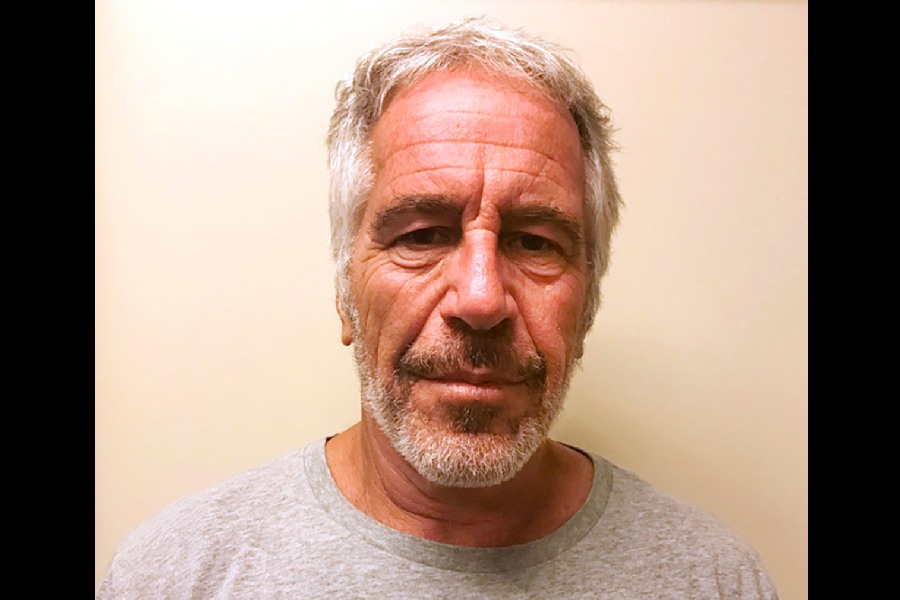June 3 :
The Prime Minister's Office (PMO) has bought peace with Rashtrapati Bhavan with a string of important appointments meant to please President K.R. Narayanan.
Beneficiaries of the peace package include his daughter, an Indian Foreign Service (IFS) officer, the President's secretary, Gopal Gandhi, and a judge who will potentially be the first Dalit chief justice of India.
Some of the appointments have been announced while others are in the pipeline. They have caused severe heartburn and resentment within New Delhi's establishment.
But sources in the BJP, on condition of anonymity, justified the expedient choices on the ground that 'in addition to a coalition Cabinet, we now have a coalition with the President as well. In coalition politics, it is necessary to parcel out patronage. The President is no exception.'
The first cause of annoyance - in the foreign service - is the appointment of the President's daughter, Chitra Mohan. A middle-level IFS officer of the 1978 batch, she has been named ambassador to Sweden.
In Stockholm, she will succeed a string of secretaries who have held the job, including the incumbent, Sushil Dubey, her senior by 14 years. Dubey is due to retire shortly.
Chitra Mohan's last posting abroad was as a junior first secretary in the Indian embassy in Washington.
She has not only not headed any mission or post before, she has not even had any responsibility at a senior or even middle level in any Indian embassy or in the ministry of external affairs (MEA).
Since her return from Washington, Chitra Mohan was given lightweight jobs since she was partly engaged in ceremonial duties at Rashtrapati Bhavan along with her mother, First Lady Usha Narayanan. She has frequently travelled with the President, creating protocol problems. While travelling abroad, she has always been ranked higher than her IFS seniors in the presidential entourage by virtue of being the President's daughter, though as a serving officer she was usually the juniormost on the VVIP aircraft.
In recent years, she has worked mainly out of the Nehru Memorial Museum on what is called a policy planning job for MEA in view of her inability, owing to responsibilities in Rashtrapati Bhavan, to cope with the demands of a post in South Block.
If Chitra Mohan's appointment was not difficult for the PMO to push through, this was not the case with the choice of Gopal Gandhi, the President's secretary, as high commissioner to Colombo.
Sri Lanka, strategic to Indian foreign policy even in normal times, has become crucial in view of the latest resurgence of Tamil Tiger activity.
Traditionally, MEA has posted its seniormost diplomat after the foreign secretary or someone with considerable experience as envoy in neighbouring countries as high commissioner to Colombo. The only exception was the incumbent, Shiv Shanker Menon, but his outstanding reputation and his record of handling China stood him in good stead.
Among the previous high commissioners in Colombo are the formidable J.N. Dixit, N.N. Jha, who was the seniormost career diplomat when Dixit became foreign secretary, and N. Dayal, who was until recently the seniormost secretary in South Block before being sent as high commissioner to London.
Gopal Gandhi, who resigned from the IAS a few years ago, has little diplomatic experience. He headed the Nehru Centre in London in the early 1990s and was briefly high commissioner to South Africa, a job offered to him since he is Mahatma Gandhi's grandson.
IFS officers with experience of Colombo had set eyes on the high commissioner's job there at this important time.
But, apart from the IFS, the PMO had to placate the BJP's ally, the DMK, which wanted a South Indian with understanding of Sri Lanka and sensitivity towards the problems there to get the Colombo job.
Both Menon and Dixit were from Kerala. So were several previous high commissioners such as Thomas Abraham and K.P. Kesava Menon. In trying to mollify the DMK, the PMO argued that Gopal Gandhi, being the grandson of C. Rajagopalachari, India's first governor-general, was half-Tamilian.
The argument did not wash with the Tamil Nadu chief minister, but in the end M. Karunanidhi appears to have accepted that it was necessary for the National Democratic Alliance to have a coalition with the President as well.
The third appointment where the government appears to have acted as the President would like it to do is of K.G. Balakrishnan as Supreme Court judge. Before being appointed to the Supreme Court, the swearing-in is yet to take place, Balakrishnan was chief justice of Madras High Court.
Balakrishnan, 58, will have a seven-year run at the Supreme Court and could become its first chief justice with a Dalit background.
After the retirement of Justice K. Ramaswamy, also a Dalit, President Narayanan had despatched a note to the then Chief Justice M.M. Punchhi that there were meritorious candidates among SC/STs also who should be considered for the Supreme Court.
The incident kicked up a controversy which persisted after Punchhi retired. Chief Justice Anand openly declared during the golden jubilee celebrations of the Indian judiciary that merit alone should matter in the appointment of Supreme Court and high court judges.
 Thursday, 12 February 2026
Thursday, 12 February 2026









